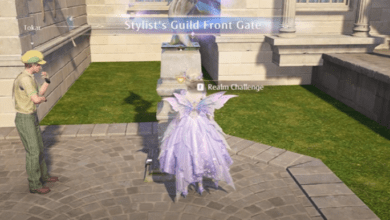Citadel: Diana Review: A Spin-off That Misses the Mark
In the ever-expanding world of the Citadel franchise, Citadel: Diana steps in as the latest addition to the spy drama universe. Starring the talented Matilda De Angelis, this Italian-set series is part of a broader strategy by Prime Video to take the Citadel story global. With its roots in the Russo Brothers’ original series starring Priyanka Chopra Jonas and Richard Madden, Citadel: Diana was expected to carry the same weight of intrigue, action, and suspense. However, does it live up to the expectations, or does it fall flat?

In this review, we’ll dive deep into what Citadel: Diana offers, explore its strengths and shortcomings, and see if it can truly expand the Citadel spy universe.
What Is Citadel: Diana About?
Set in the year 2030 in Milan, Citadel: Diana follows the story of Diana Cavaleri, portrayed by Matilda De Angelis. Eight years before the events of the series, Diana was recruited by Citadel, a global spy agency, after the death of her parents in a plane crash orchestrated by their rivals, Manticore. Fuelled by revenge, Diana infiltrates Manticore, determined to bring the organization to its knees.
But things are far from simple. As the last remaining Citadel agent still committed to the mission, Diana is grappling with exhaustion and a chronic illness. She finds herself at a crossroads, torn between abandoning her dangerous double life or continuing her fight against Manticore. Adding to the complexity is her growing relationship with Edo Zani, heir to Manticore, played by Lorenzo Cervasio. As Diana battles both her inner demons and external threats, viewers are taken on a journey through espionage, betrayal, and divided loyalties.
The Action (or Lack Thereof)
Spy dramas thrive on heart-pounding action sequences, high-stakes missions, and edge-of-your-seat tension. Unfortunately, Citadel: Diana falls short on delivering the level of action one would expect from a series set in the espionage world.
While there are two major stunt sequences, they feel like diamonds in the rough brilliant but scarce. These moments, such as a zipline chase scene, are well-choreographed and visually impressive. Director Arnaldo Catinari captures the intensity of these scenes with great camera work, ensuring they leave a lasting impression. But outside of these standout moments, the show fails to maintain the fast pace expected in a spy thriller.
If you’re hoping for a high-octane action series, like Mission Impossible or James Bond, you might be left wanting more. The action sequences are few and far between, leaving the show feeling more like a slow-burn drama than a thrilling espionage adventure.
A Missed Opportunity for Character Depth
One of the most disappointing aspects of Citadel: Diana is its lack of character development. Spy dramas have the unique ability to delve into the psyche of their characters, revealing the emotional toll of leading double lives, the moral dilemmas they face, and the weight of their decisions. Sadly, Citadel: Diana barely scratches the surface.
Diana, as the lead, is compelling enough with her tragic backstory and motivations for revenge. However, the show doesn’t fully explore her complexities or offer any meaningful character growth. Her relationships, particularly with Edo, feel underdeveloped, missing the opportunity to explore how a spy can fall for the enemy and what that means for her loyalty to Citadel.
Edo Zani, as a character, had the potential to be a game-changer. As the next-in-line to lead Manticore, he is a man caught between his family’s legacy and his desire to reshape the organization. Yet, the series fails to dig into the nuances of his character, leaving his motivations and inner conflicts largely unexplored. More effort should have been made to give Edo depth, particularly in the context of his inventions and how they tie into the larger Citadel universe.
Underutilized Italian Setting
One of the most exciting aspects of Citadel: Diana was its potential to differentiate itself from other international spy dramas through its unique Italian setting. After all, Milan, with its rich history, culture, and architecture, offers the perfect backdrop for a high-stakes espionage series.
Yet, the show barely leverages its location. While we do get glimpses of Milan, the city is not utilized to its full potential. The narrative could have incorporated more elements of Italian culture and politics, tying them into the overarching espionage plot. Instead, the series feels like it could have been set in any city in the world. Italy’s espionage division, Manticore, could have been portrayed in a more distinct way to set it apart from its counterparts around the globe, but the series misses the mark here too.
The Stuntwork – A Silver Lining
If there’s one thing Citadel: Diana gets right, it’s the stunt choreography. As mentioned earlier, the two major action sequences one involving a zipline chase are well-executed and provide some of the series’ most memorable moments. The direction during these scenes is sharp, and the camera work makes the stunts feel fluid and impactful.
The weaponry design, particularly in the hands of Edo Zani, also deserves a mention. Manticore’s advanced technology is visually striking, and the concept of Edo crafting futuristic weapons for his father’s organization adds a layer of intrigue. Unfortunately, the show doesn’t explore the full potential of these elements, leaving viewers with the sense that much more could have been done.
Does Citadel: Diana Expand the Spyverse?
One of the primary goals of Citadel: Diana was to expand the Citadel Spyverse but does it succeed? Unfortunately, it doesn’t feel like a meaningful addition to the franchise.
While the original Citadel series introduced viewers to a global spy network, complete with larger-than-life stakes, Citadel: Diana struggles to offer anything new. Instead, it relies on familiar spy tropes, without pushing the boundaries of the genre. The show fails to build on the foundation laid by the original series, instead opting for a more self-contained story that doesn’t add much to the Citadel universe.
With more international spin-offs on the horizon, it’s crucial that future instalments do more to differentiate themselves, both in terms of plot and setting. The Citadel Spyverse has potential, but only if the series within it take full advantage of their unique locations, characters, and stories.
Final Thoughts on Citadel: Diana
In conclusion, Citadel: Diana is a spin-off that, while not without its merits, doesn’t live up to its potential. The show’s limited action sequences, lack of character depth, and underutilized setting prevent it from standing out in a crowded field of spy dramas. Despite strong performances from Matilda De Angelis and Lorenzo Cervasio, the series feels like a missed opportunity to expand the Citadel Spyverse in a meaningful way.
That said, if you’re a fan of the original Citadel and are curious to see how the Italian division of Manticore operates, Citadel: Diana might still be worth a watch. Just don’t expect it to blow you away.
FAQs
What is Citadel: Diana about?
Citadel: Diana follows Diana Cavaleri, a spy seeking revenge on Manticore, the organization responsible for her parents’ death. Set in Milan in 2030, the series explores Diana’s internal conflict between leaving her espionage life behind and completing her mission.
Is Citadel: Diana action-packed?
The series has a few well-executed stunt sequences, but overall, it lacks the level of action you would expect from a spy drama. The focus is more on drama and character interactions than high-paced espionage thrills.
How does Citadel: Diana fit into the Citadel Spyverse?
While Citadel: Diana is set in the same universe as the original Citadel series, it doesn’t do much to expand the overall franchise. The show feels more self-contained and doesn’t dive deep into the global implications of the Citadel vs. Manticore conflict.
Is the Italian setting utilized effectively in Citadel: Diana?
Unfortunately, the Italian setting is underutilized. While the series takes place in Milan, the show doesn’t incorporate much of the city’s culture or politics, which could have made the story more unique.
Should I watch Citadel: Diana if I haven’t seen the original Citadel series?
You don’t necessarily need to watch the original Citadel to understand Citadel: Diana. However, some references to the broader Citadel Spyverse might go over your head if you haven’t seen the original.





